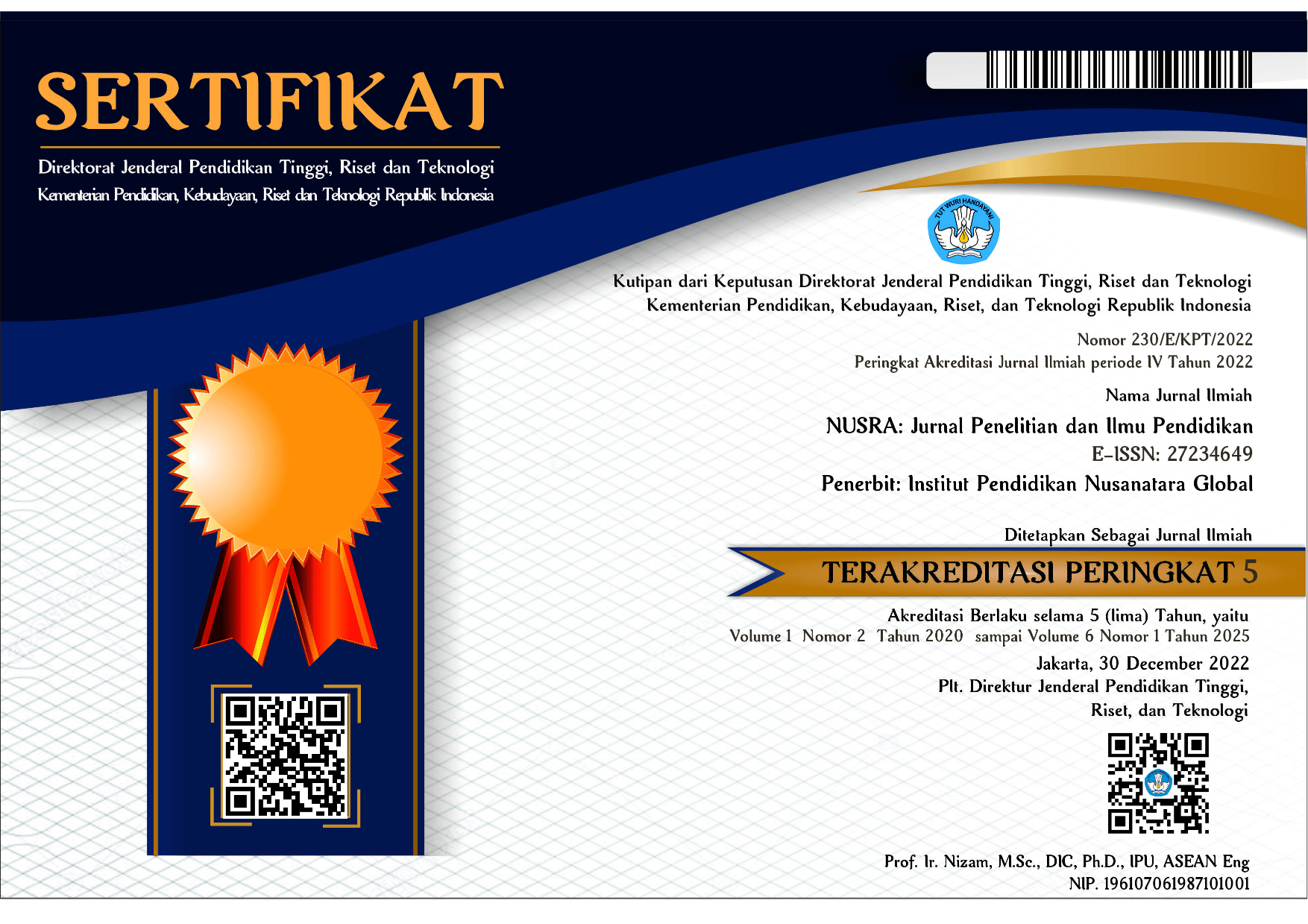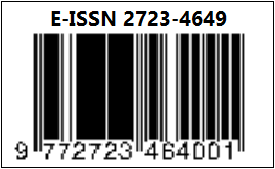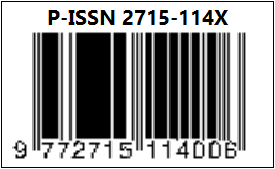Integrasi Etika AI dalam Pendidikan Agama Kristen: Tantangan dan Peluang
DOI:
https://doi.org/10.55681/nusra.v5i3.3173Keywords:
AI Ethics, Christian Religious Education, Challenges and OpportunitiesAbstract
AI ethics is a branch of ethics that focuses on moral principles in the development and use of AI technologies. This research aims to integrate AI ethics in Christian religious education and explore the opportunities and challenges in the process, as well as strategies to overcome these challenges. The method used is a descriptive qualitative approach with literature studies from various sources such as books, national and international journals, and websites. The results show the importance of integrating AI ethics in Christian religious education to shape students' characters, prepare their future, and improve the quality of learning. Challenges faced include limited resources, digital divide, lack of understanding of AI ethics, and the need for adequate supervision and regulation. Strategies to address these challenges include improving technological infrastructure, training for teachers, and developing policies that support the integration of AI ethics in Christian religious education.
Downloads
References
Amalia Yunia Rahmawati. 2019. “Literasi Digital, Mendidik Anak Di Era
Digital Bagi Orang Tua Milenial.” Jurnal Politik Dan Sosial Kemasyarakatan 11, no. 2: 119–238.
Apriyanti, R S, Djoys Anneke Rantung, and Lamhot Naibaho. 2023. “Integrasi Teknologi Dalam Pembelajaran Pendidikan Agama Kristen ( PAK ) Sebagai Peluang Dan Tantangan Di Era Digital” 06, no. 01: 7607–13.
Aryanto Budiono. 2018. “Inovasi Pengajaran Firman Di Era Revolusi Industri 4.0 Aryanto.” Jurnal Teologi Dan Pendidikan Kristiani 1, no. 2: 133. https://doi.org/10.1093/oso/9780192848840.003.0003.
Boiliu, Fredik Melkias. 2020. “Pembelajaran Pendidikan Agama Kristen Dalam Keluarga Di Era Digital.” TE DEUM (Jurnal Teologi Dan Pengembangan Pelayanan) 10, no. 1: 107–19. https://doi.org/10.51828/td.v10i1.17
Candra, Puspita Adiyani. 2013. “Penggunaan Internet Pada Anak-Anak Sekolah Usia 6-12 Tahun Di Surabaya.” Journal Health and Medicine 2, no. 1: 1–10.
Enklaar, E.G. Homrighousen & I.H. Pendidikan Agama Kristen. Jakarta: BPK Gunung Mulia, 2008.
Ermindyawati, Lilis. 2019. “Peranan Guru Pendidikan Agama Kristen Terhadap Perilaku Siswa-Siswi.” Fidei: Jurnal Teologi Sistematika Dan Praktika, 2, no. 1: 2621-8151.
Hasni, Enos Batusalu, Jendriani Kambira. “Meningkatkan Kualitas Pembelajaran.” Seminar Nasional Teknologi Pendidikan UKI Toraja, 2023, 1–13.
Harwati Hashim. 2018. “Application of Technology in the Digital Era Education.” International Journal of Research in Counseling and Education 2, no. 1: 1–5. 17.
Hidayati, Naning, Dian Hidayati, Zusuf Hani Saputro, and Tutik Lestari. 2022. “Implementasi Pembelajaran Projek Pada Sekolah Penggerak di Era Digital.” Journal of Education and Teaching (JET) 4, no. 1: 68–82. https://doi.org/10.51454/jet.v4i1.200.
Homrighausen. 2012. Pendidikan Agama Kristen. Jalarta: BPK: Gunung Mulia.
Industri, Revolusi, D A N Pasca, Mark Phillips Eliasaputra, Martina Novalina, and Ruth Judica Siahaan. 2020. “Tantangan Pendidikan Agama Kristen Di Era.” BONAFIDE: Jurnal Teologi Dan Pendidikan Kristen 1, no. 1: 1–22.
Nasrullah, Dede. Teori Etika. Keperawatan Keluarga, 2019.
Pongtambing, Yulita Sirinti, Felycitae Ekalaya Appa, A. Muh. Amil Siddik, Eliyah A M Sampetoding, Harsi Admawati, Arini Anestesia Purba, Arnold Sau, and Esther S Manapa. “Peluang Dan Tantangan Kecerdasan Buatan Bagi Generasi Muda.” Bakti Sekawan : Jurnal Pengabdian Masyarakat 3, no. 1 (2023): 23–28. https://doi.org/10.35746/bakwan.v3i1.362.
Rifky Sehan, Dkk. Artificisl Intelegence: Teori Dan Penerapan AI Di Berbagai Bidang. Jambi: PT. Sonpedia Publishing Indonesia, 2024.
Venzha Christ, Ivo Trias Julianno, Kim Seong Min. Prosiding Seminar Nasional Seni Dan Budaya Poshuman Dan Interdisiplinaritas. Yogyakarta: Sanata Dharma University Press, 2023.
Downloads
Published
How to Cite
Issue
Section
License
Copyright (c) 2024 Ade Epatri Nenomataus, Djoys Anneke Rantung, Lamhot Naibaho

This work is licensed under a Creative Commons Attribution-ShareAlike 4.0 International License.














